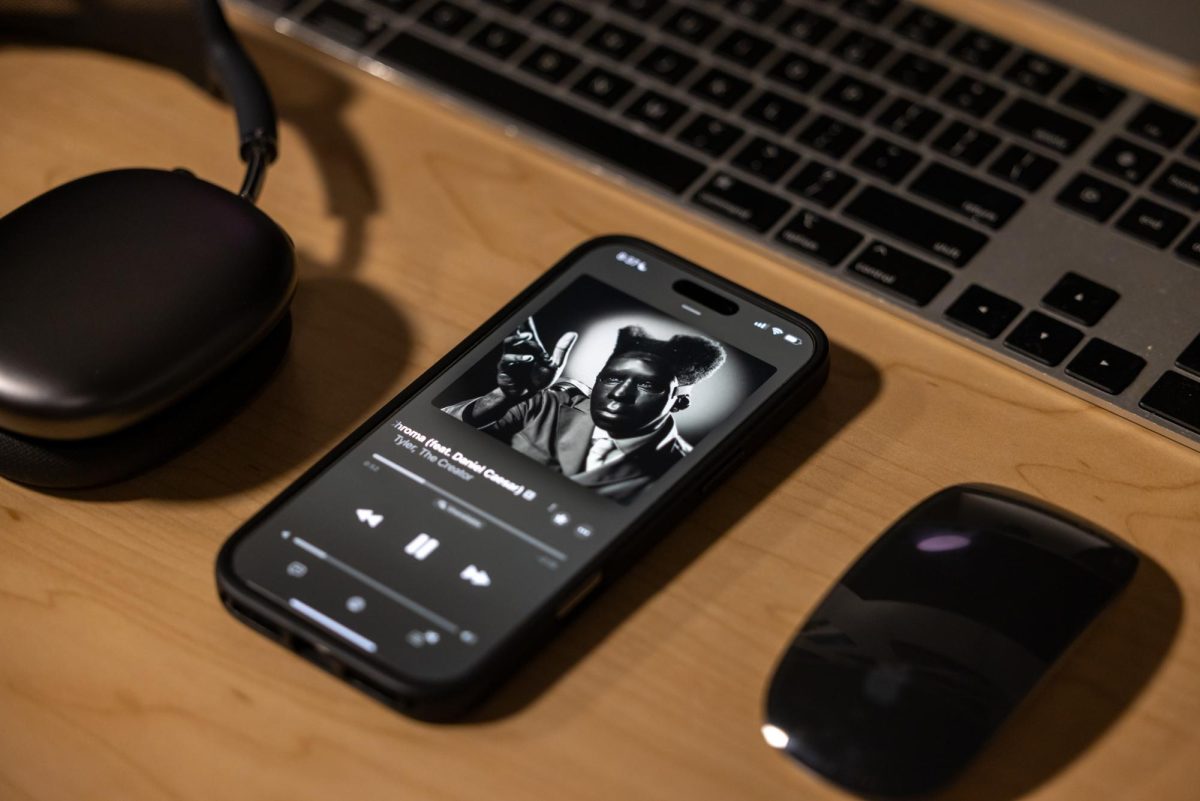
Just a day before Lana del Rey performed her now-infamous two-song set on Saturday Night Live, I sat down with my roommates to watch “That Thing You Do,” the 1996 film about a 1960s one-hit-wonder called “The Oneders.” Their story seems oddly parallel to del Rey’s quick rise and her imminent quick fall, punctuated by the release of her debut album Born to Die.
Just like her fictional counterparts in “That Thing You Do,” del Rey rocketed onto the indie pop scene with a near-perfect, catchy song that captivated all who listened to it. In her case, the swelling strings, genuine songwriting and sultry vocals of “Video Games” led to almost instant recognition on blogs last summer, and Lana del Rey’s vintage good looks seemed to have her positioned to replace Zooey Deschanel as the stereotypical love of all American hipster men.
But something happened between the release of “Video Games” and Tuesday’s release of Born to Die, and it wasn’t the lackluster SNL performance. Del Rey’s penchant for melodrama hit its peak with the release of the video for the album’s title track in December; the bloody and provocative clip converted her from potential pop gem to the kind of artist fans of bands like Muse listen to so they can say they have indie cred.
Born to Die appeals to this demographic. Throughout the next several months, we’ll probably hear the title track on the radio or see “National Anthem” listed as one of the most-listened songs on Spotify. But the entire album fails to become the first major music event of 2012 everyone expected and hoped it would be.
Case in point: the evolutions of “National Anthem” and “This Is What Makes Us Girls,” the closing track. Demo recordings of both songs leaked in late 2011 and suggested del Rey’s debut would be musically diverse and feature just as many cathartic songs like “Video Games” or “Born to Die” as it would upbeat, top-down convertible songs like “National Anthem.”
Everything about the original “National Anthem” was pleasant, sunny and exactly what could have made del Rey a truly effective, but not great, pop star. But instead, she (or her producers) decided to add a downbeat, depressing-sounding element to the song, a malady which plagues the entire album. Not one track on Born to Die breaks from the apocalyptic-sounding love ballad mold, and those who were expecting LDR greatness are left wondering what bade them believe in her in the first place.
Del Rey’s inability to write a song better than “Video Games” is especially noticeable on the album’s second half. “Million Dollar Man” is the most cringe-worthy offender – another progression of swelling strings blankets a truly awful refrain: “One for the money/ Two for the show/ I love you honey/ I’m ready, I’m ready, I’m ready to go.”
Those who were rooting for del Rey, me included, will spend the next few weeks wondering what went wrong. Why didn’t we listen to everyone who warned us she was over-exposed too soon? Why did we even care? And perhaps most importantly, how will all of this be remembered?
For now, my money says del Rey will fade away as a singer-songwriter without a niche. Her refusal to embrace either indie fans or their foils, Katy Perry fans who liked what they heard, means she will only be remembered for the months-long hype and crushing disappointment that surrounded the release of Born to Die.
Hopefully that’s good enough material for a fun movie about a one-hit-wonder singer 30 years from now.
2 out of 5 stars



















